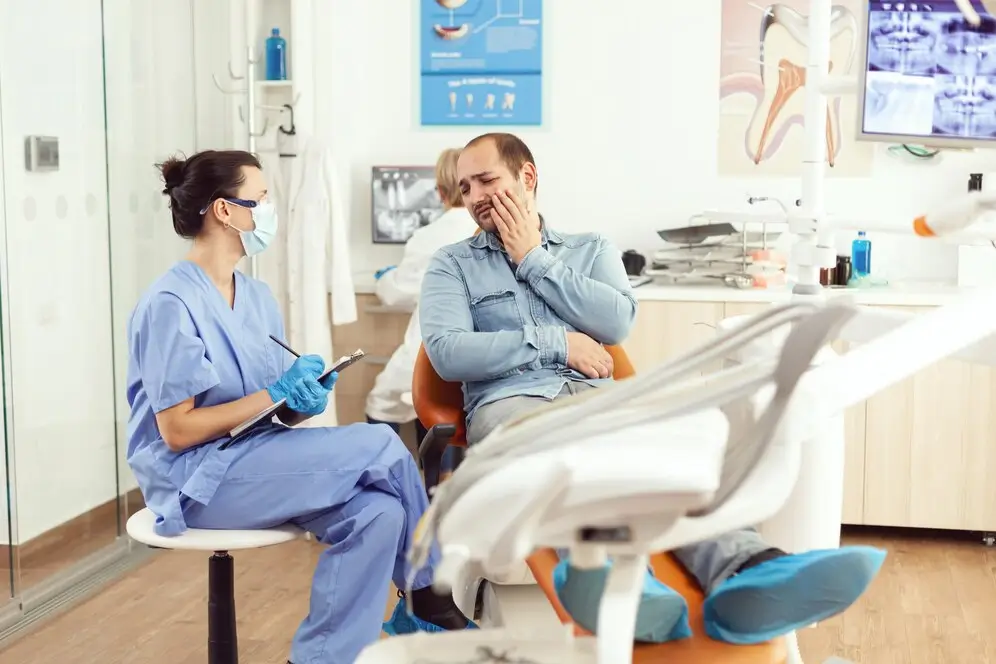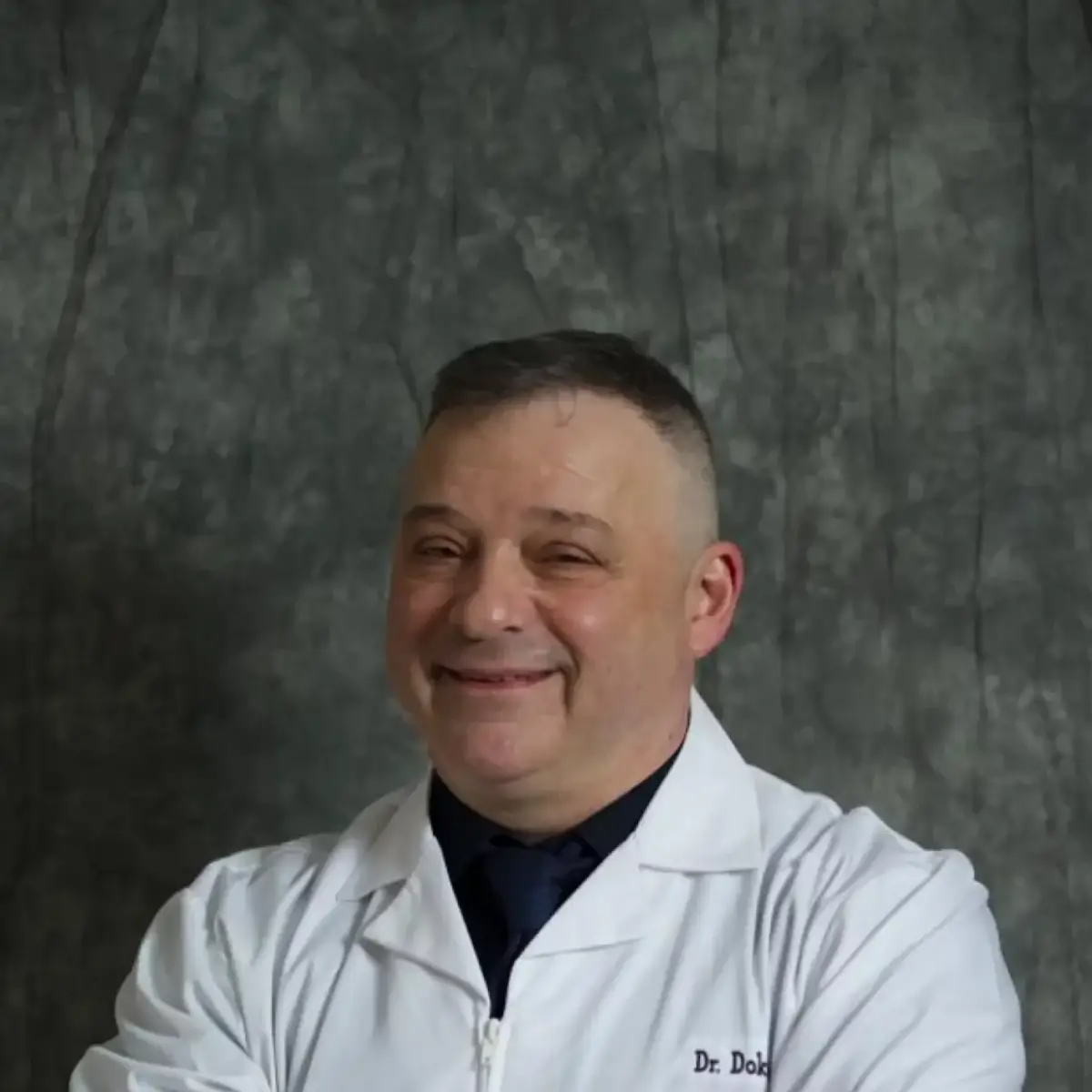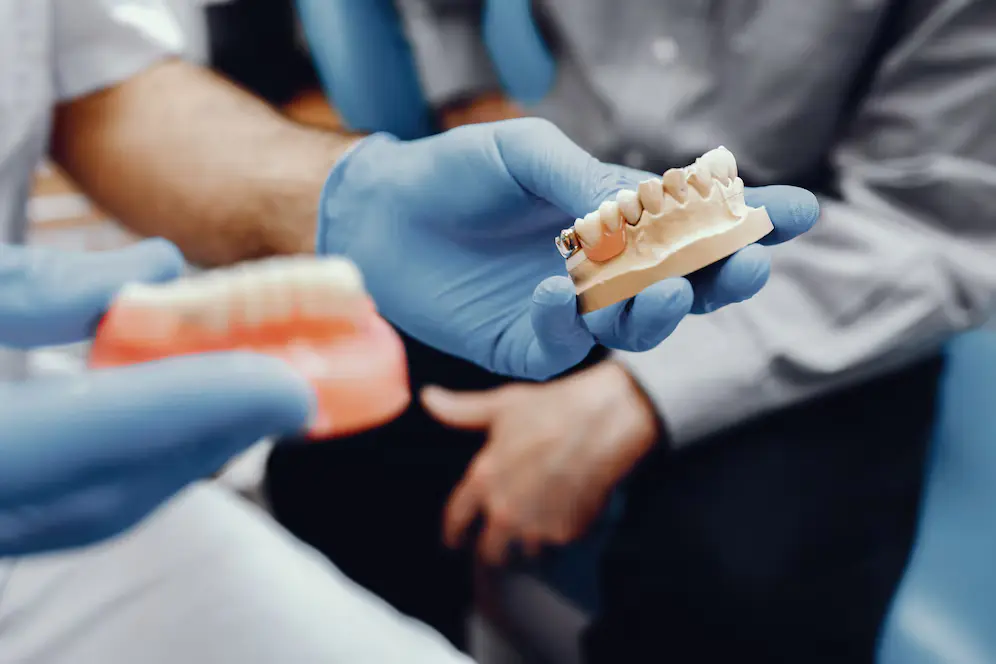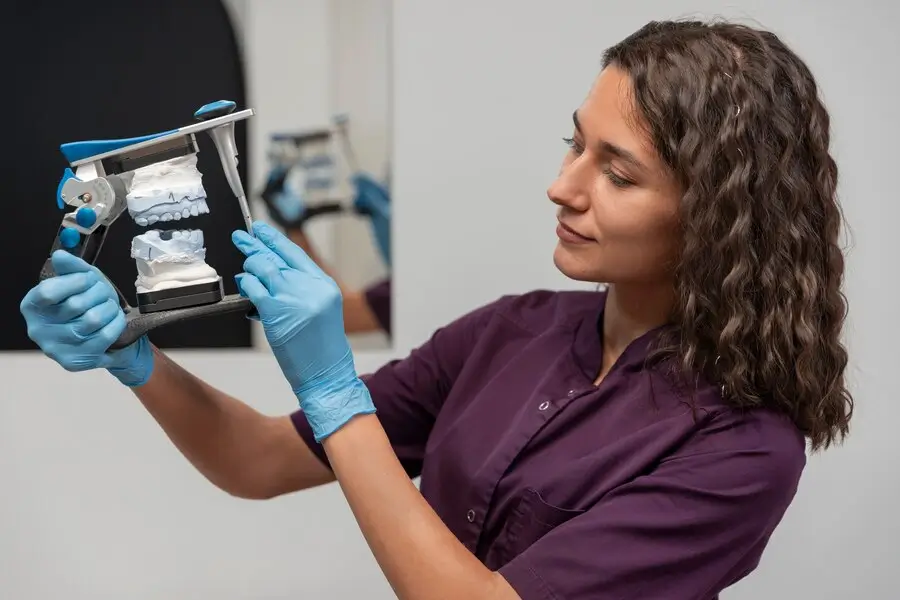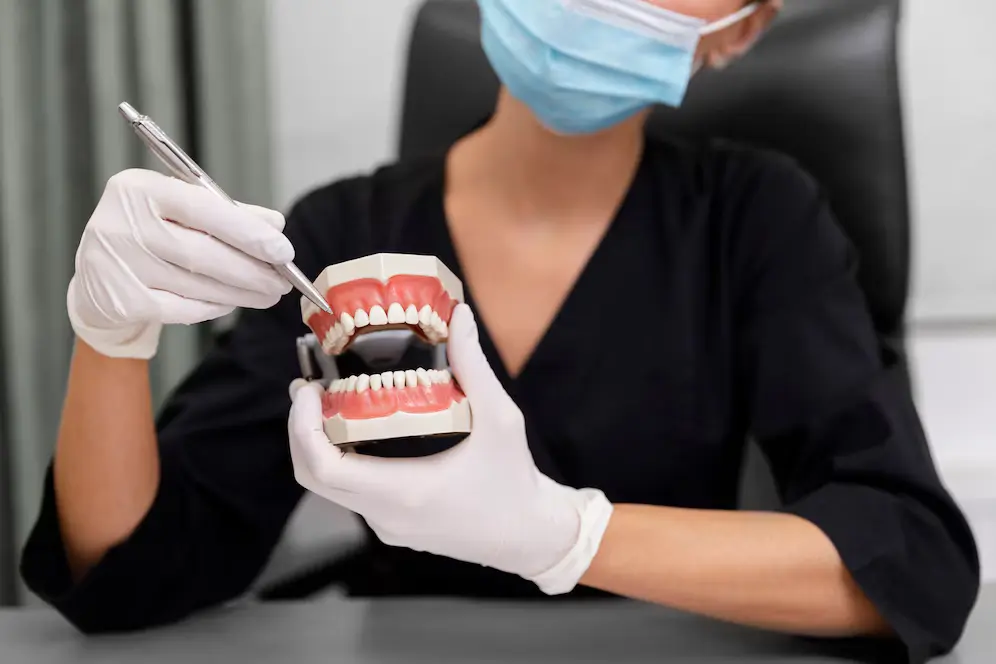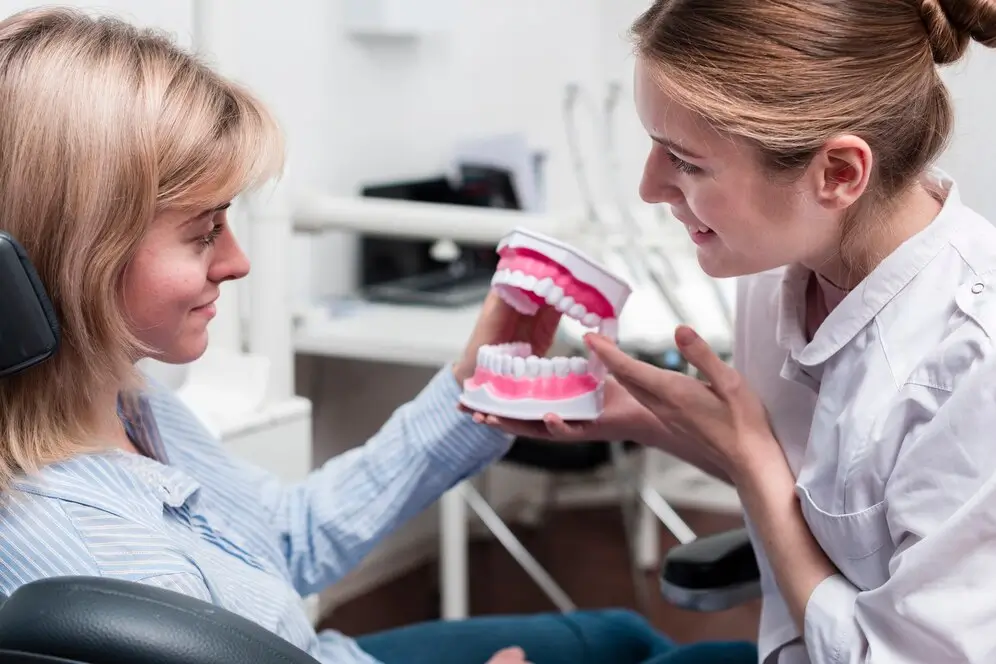What Qualifies as a Dental Emergency?
Some dental issues can wait, but others need immediate attention. What is dental emergency? Severe tooth pain that won’t go away, a broken or knocked-out tooth, or uncontrolled bleeding all require urgent care.
If you’re dealing with a dentist emergency, you need to see an emergency dentist as soon as possible. Prompt treatment can relieve pain and protect your oral health. If you need emergency dental and are looking for a dentist in Clifton, don’t wait—call now for immediate help.
Common Types of Dental Emergencies
When a dental problem happens unexpectedly, knowing what to do can make a big difference. Here are some of the most common situations that need dental care.
- Severe toothache – a toothache emergency caused by decay, infection, or nerve damage. If the pain is intense or persistent, it’s a sign that urgent care is needed.
- Broken or chipped teeth – a damaged tooth can be painful and vulnerable to further damage. A dentist can restore it with bonding, a crown, or other treatments.
- Knocked-out tooth – a lost tooth needs immediate attention. If you get to an emergency dentist quickly, there’s a chance it can be saved.
- Abscess or infection – swelling, pus, or extreme emergency tooth pain usually means an infection. This needs fast treatment to prevent it from spreading.
- Lost filling or crown – without protection, the affected tooth can become sensitive and prone to further damage. A dentist can replace or repair it.
If you’re wondering how to choose a dentist for emergencies, look for someone who has same-day appointments and has experience handling urgent cases. When you need emergency dental treatment, seek help right away to avoid complications.
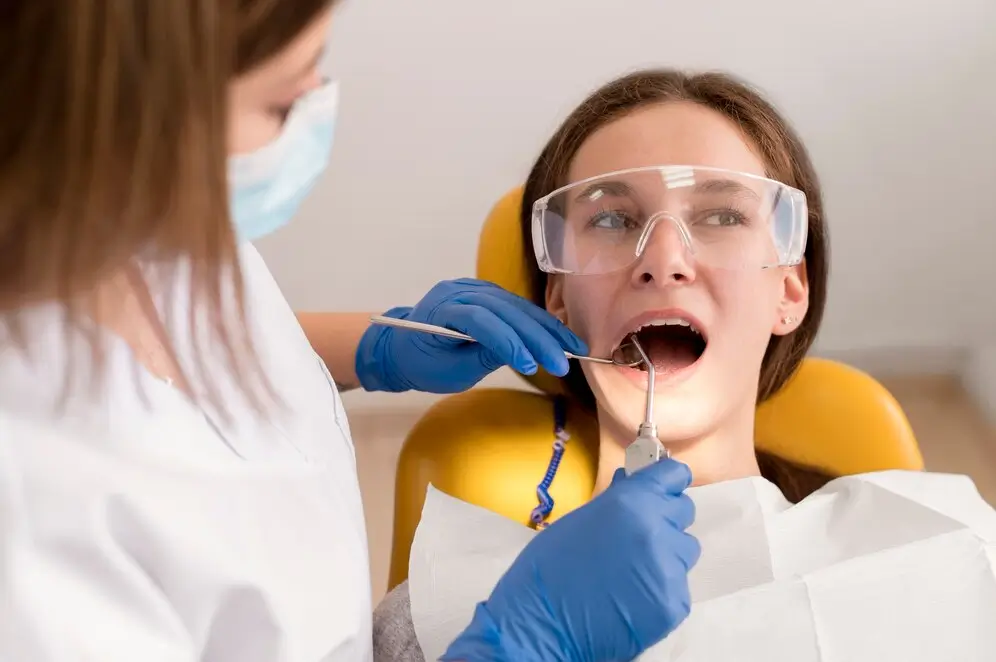
What Is Not Considered a Dental Emergency?
Not every dental issue needs immediate attention. Of course, some problems can feel like they’re urgent. But sometimes people may not need same-day treatment. Understanding what is a dental emergency can help you understand if you need urgent care. This way, you’ll learn if you need to do something now or to schedule a regular appointment with a family dentist instead. Some of the situations when you don’t need a same-day appointment or emergency care include:
- Minor toothache – if the pain is mild and goes away with over-the-counter medication, it’s likely not a tooth emergency. But, if it worsens, a dentist should check it.
- A small chip or crack – a slightly chipped tooth without pain isn’t usually a dental emergency. Unless it’s sharp or causing discomfort, it can typically wait for a scheduled visit.
- Lost Filling or crown (without pain) – if a filling or crown falls out, but the tooth isn’t sensitive, it’s not what is considered a dental emergency. Though, you should probably fix it soon to prevent damage.
- Mild gum irritation – for slight redness or swelling you’ll probably need good oral hygiene, and it doesn’t require urgent care.
- Questions about dental treatments – if you’re considering dental implants or other procedures, you don’t need an emergency visit. A consultation with a family dentist is the best way to discuss it.
If you’re still unsure, it’s always best to call your dentist for advice.
What to Do in a Dental Emergency?
If you deal with pain or injury, you should know what classifies as a dental emergency. It can help you take the right steps before seeing a dentist. Understanding what are dental emergencies and acting quickly can prevent further damage and relieve discomfort while you seek dental urgent care.
Severe Toothaches
A sudden toothache can tell you about an infection or nerve damage. If you’re experiencing dental emergencies like this, rinse your mouth with warm water. Then, floss gently to remove any trapped debris, and take a pain reliever if you need one. If you still feel pain, then seek immediate treatment.
Knocked-Out Teeth
A knocked-out tooth definitely needs urgent care. If you can, place the tooth back in its socket without touching the root. If that’s not possible, store it in milk or a saline solution and get to a dental care provider quickly. The faster you are, the more chances to save the tooth.
Fractured or Cracked Teeth
A cracked or broken tooth is usually painful and may worsen if you don’t treat it. Rinse your mouth with warm water, apply a cold compress, and avoid chewing on the affected side. See a dentist as soon as possible.
Dental Abscesses
A dental abscess is a serious infection. It can cause swelling, severe pain, and fever. An abscess requires immediate attention if you don’t want complications. Rinse with salt water to ease discomfort and contact a dentist right away.
For less urgent issues, like mild tooth pain or a lost filling, schedule an appointment. If you’re considering types of dental implants or other procedures, these can usually wait for a planned visit rather than emergency treatment.
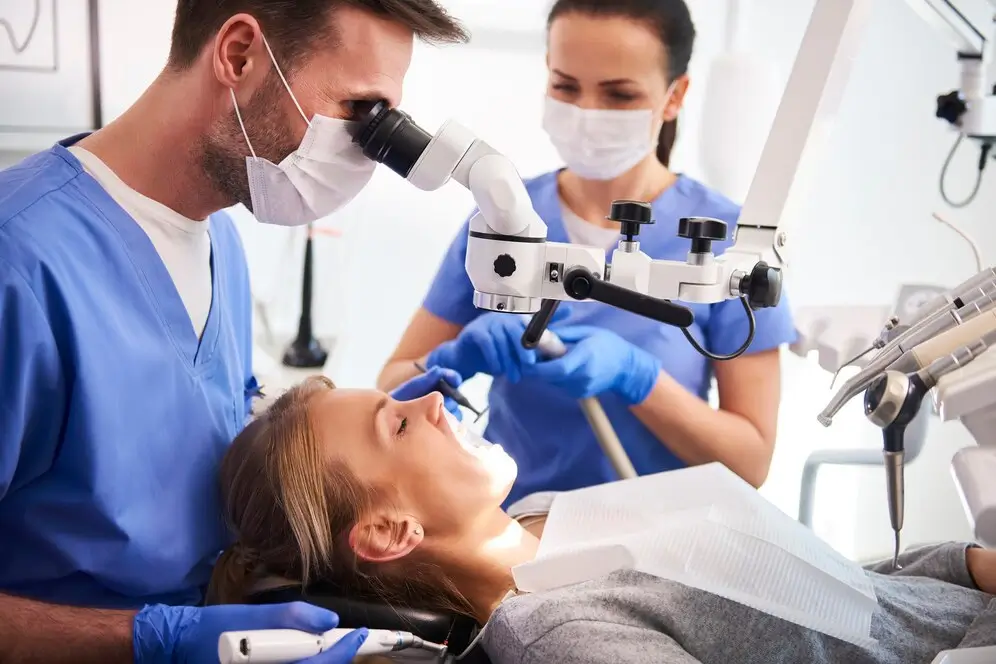
Common Causes of Dental Emergencies
You should know what constitutes a dental emergency to prevent serious dental problems. Many emergencies happen unexpectedly, but some can be avoided with proper care. Some of the most common causes of urgent dental issues are:
- Tooth decay and cavities – untreated cavities can lead to severe pain, infections, and abscesses. It may require immediate care from an emergency tooth doctor.
- Trauma or accidents – falls, sports injuries, or biting on hard objects can cause chipped, cracked, or knocked-out teeth. Quick action can save a tooth and prevent complications.
- Gum infections – swelling, redness, and pus can indicate an infection that needs urgent attention. Ignoring gum issues may lead to more serious problems.
- Grinding and clenching – constant grinding can wear down enamel. It causes cracks or fractures over time. If left untreated, it might require restorative treatments like types of dentures or crowns.
- Old or failing dental work – fillings, crowns, or bridges that become loose or fall out cause sensitivity and damage, sometimes turning into what counts as a dental emergency.
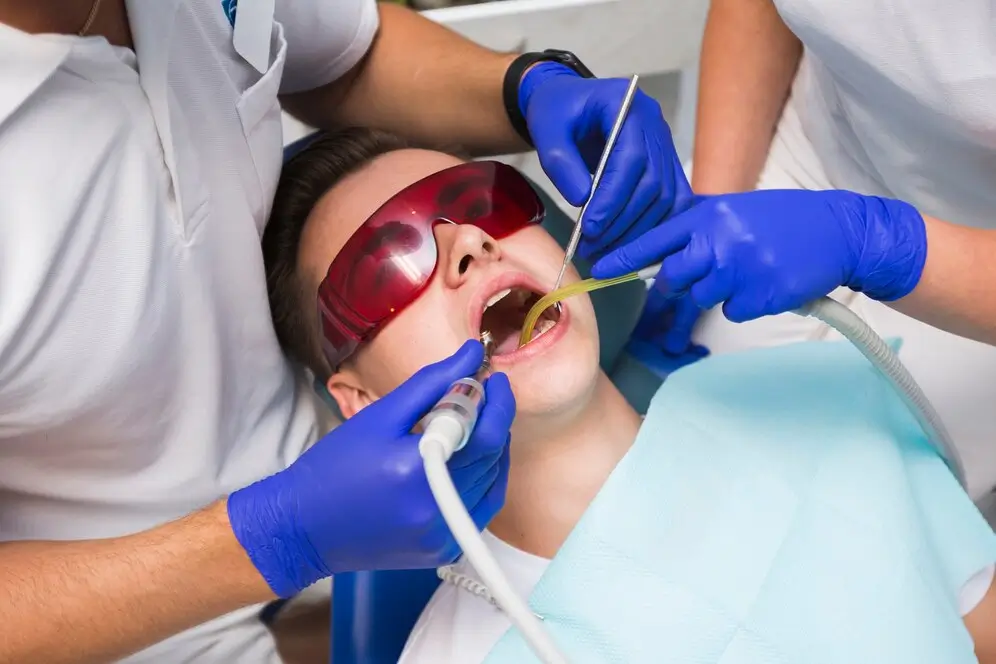
How to Prevent Dental Emergencies?
While some dental issues happen unexpectedly, you can avoid some of them with proper care. Here’s how you can reduce the risk of a dental emergency:
- Maintain good oral hygiene – bushing twice a day, flossing daily, and using mouthwash help prevent decay and gum disease, reducing the chances of a tooth pain emergency.
- Visit your dentist regularly – routine checkups help catch small problems before they turn into serious issues. Cleanings and exams help your teeth and gums stay healthy.
- Wear a mouthguard for sports – if you play contact sports, using a mouthguard protects your teeth from injury, prevents fractures or knocked-out teeth.
- Avoid chewing hard foods – Biting down on ice, hard candy, or unpopped popcorn kernels can lead to cracks and chips.
- Fix dental issues early – if you notice sensitivity, minor pain, or a loose filling, don’t wait. Getting treatment early prevents the problem.
Taking care of your teeth now can help you avoid unexpected trips to an emergency care dentist.
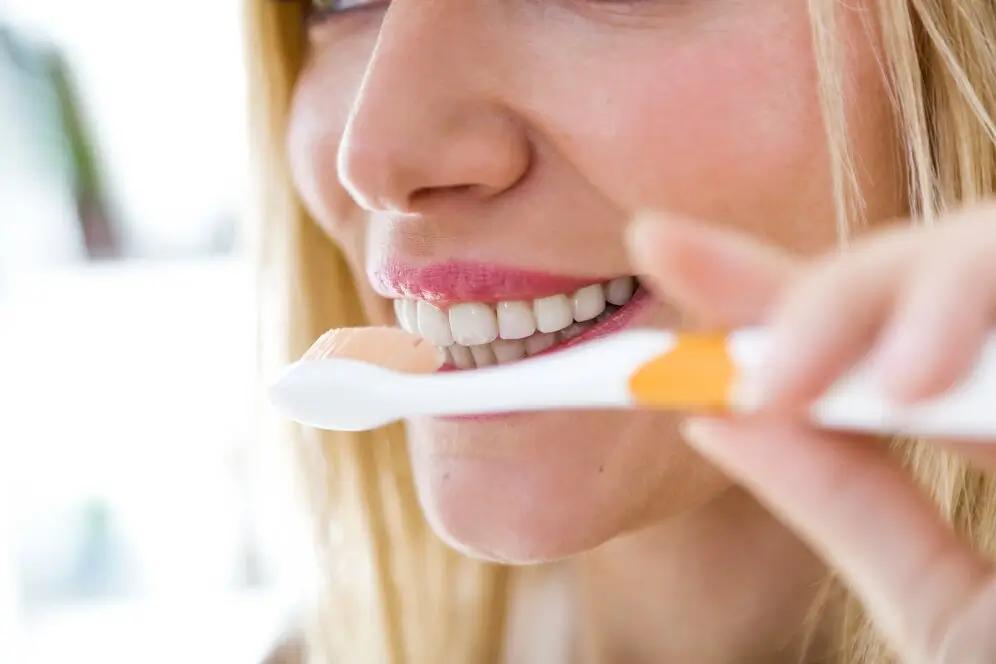
Emergency Dental Care at Dr. Doktorman’s Office
Dr. Edward Doktorman provides expert emergency dental care, he can provide immediate relief and long-term solutions for patients in need. If you have a severe toothache, a broken tooth, or an infection, his experience and advanced techniques help every patient receive top-quality treatment.
Dr. Doktorman’s practice handles different urgent dental issues. With years of experience in oral surgery, prosthodontics, and patient management, he can give you personalized care. Patients can expect prompt pain relief, effective treatment plans, and a welcoming environment that makes emergency visits less stressful.
If you’re facing a dental emergency, don’t wait. Contact Dr. Doktorman’s office today for immediate care and expert treatment. Your smile deserves the best care.
FAQs About Emergency Dental
What to do in a Dental Emergency?
Knowing what an emergency dentist is and when to seek urgent care can make a big difference. If you have severe pain, swelling, or a knocked-out tooth, contact your dentist immediately. While waiting for treatment, rinse your mouth with warm water, apply a cold compress to reduce swelling, and avoid chewing on the affected area.
How do I Manage Severe Tooth Pain Until I Can See a Dentist?
If you’re dealing with intense pain, over-the-counter pain relievers can help temporarily. Rinsing with warm salt water or applying a cold compress can also help. However, pain is a sign that something is wrong, so it’s important to seek a dentist as soon as possible.
Can a broken tooth be considered a dental emergency?
Yes, a broken or cracked tooth is often considered what is emergency dental treatment. Especially if it causes pain or exposes the inner layers of the tooth. Without treatment, it can get worse, leading to infection or further damage. If possible, save any broken pieces and bring them to your dentist.
What Should I do if I Lose a Filling or Crown?
A lost filling or crown may not always require immediate treatment, but it should be treated soon to prevent further damage. If a crown comes off, try to place it back over the tooth using temporary dental cement from a pharmacy. Avoid chewing on that side of your mouth until you see a dentist.
Do Emergency Rooms Treat Dental Emergencies?
Most ERs can give you pain relief and antibiotics for infections, but they do not perform emergency dental procedures like extractions or restorations. If you have a dental emergency, it’s best to contact a dentist directly for the appropriate care.
